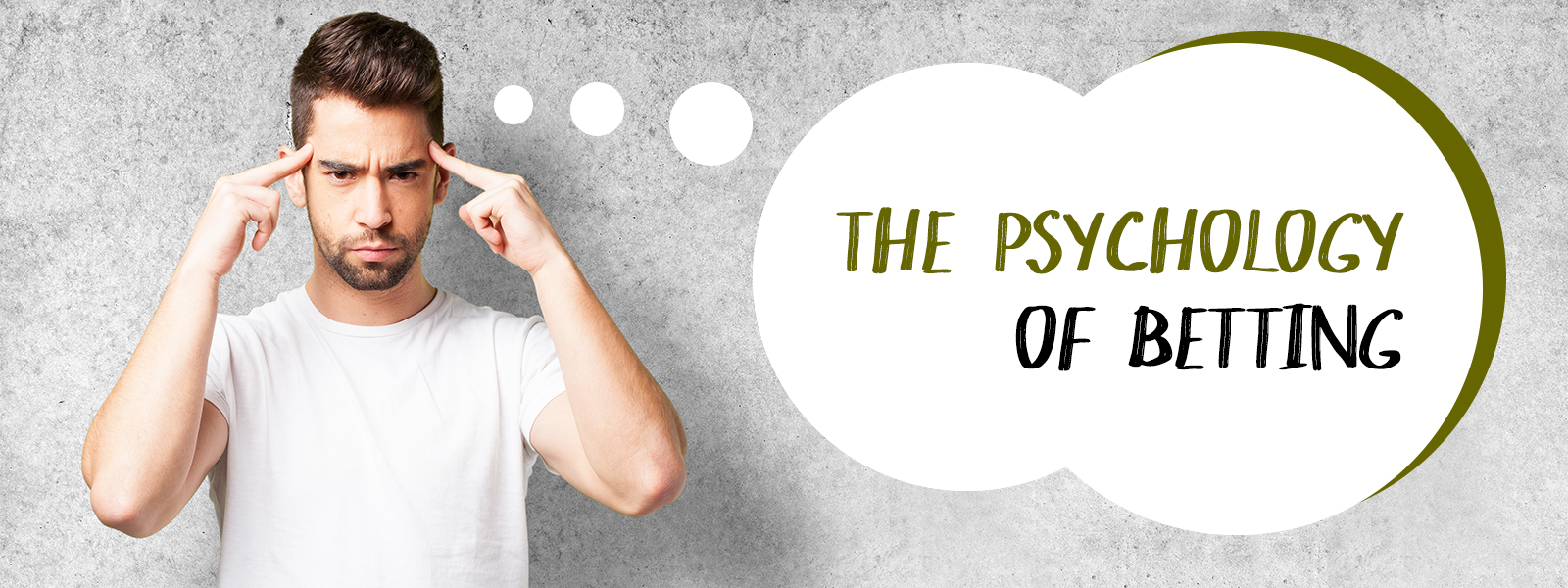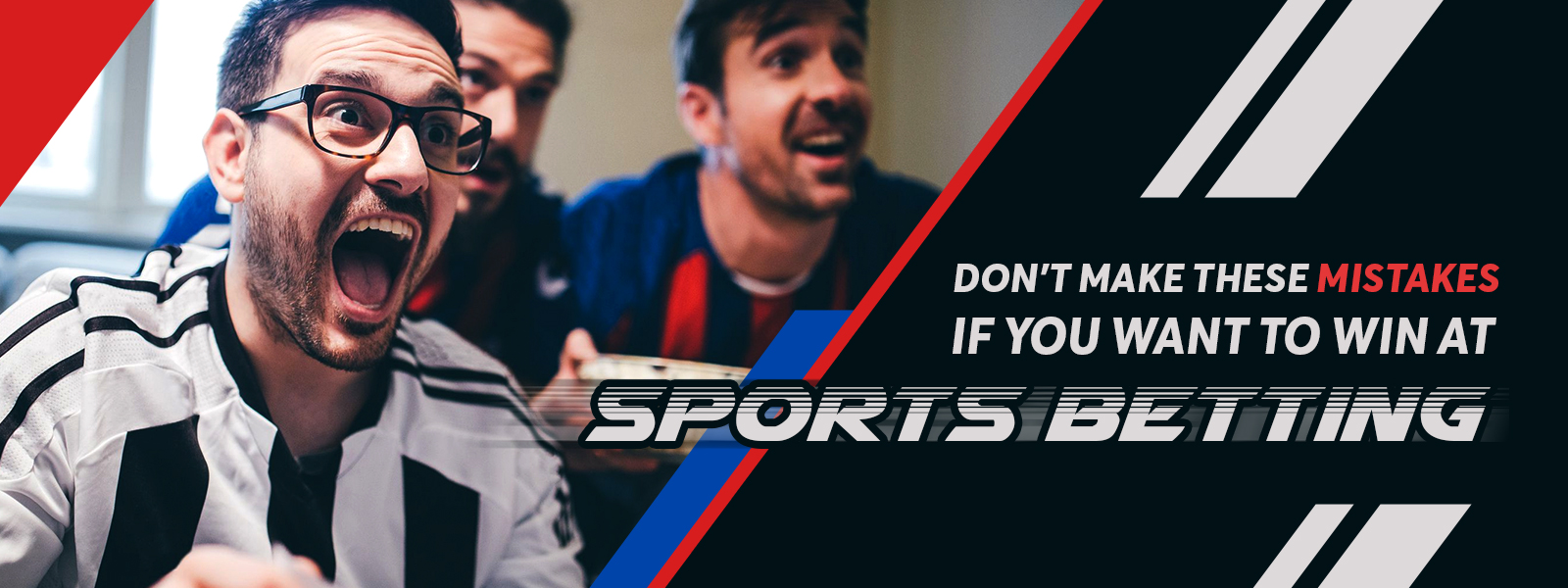- November 10,2018
- -
- Asher K
It is pretty much a fact that betting is an incredibly popular recreational activity. The legal football betting industry alone is worth billions of dollars. Las Vegas casinos boast of millions of visitors every year. Despite all the negative connotations, some of us can’t seem to get enough of it. But why are some people more prone to developing a love for the act of placing their money on the line than others? Here’s what psychology has to say about this hedonistic habit.
1) Psychoanalytical Theories.
Freud and his fellow psychoanalysts didn’t exactly come up with the most widely accepted concepts and theories. Most modern practitioners have largely disputed this school of psychology, so it’s understandable if this makes no sense.
Psychoanalysis placed a strong emphasis on the unconscious - the part of your mind that’s full of unfulfilled desires and fantasies that you don’t know exist, that are often sexual and inappropriate.
Psychoanalysts attribute gambling to need to satisfy these erotic, primitive needs, and placing bets and potentially winning offers a safe way to do so. Another theory states that gambling results from the unconscious guilt that stems from improper parental socialization as a child as a way to resolve themselves from it.
2) Learning Theories
This perspective is mostly based on the concept of reinforcement, both positive and negative. Essentially, positive reinforcement is when a particular action or object increases the likelihood that past behavior will be repeated. Winning a bet increases the chances of betting again, and negative reinforcement is when the removal of something increases the risk that past behavior will be repeated due to the elimination of negative emotions due to the thrill of betting and winning.
Classical conditioning also comes into play, where an individual associate the arousal and excitement experienced during his first bet, say, a football game. They then remember these positive emotions during their next football game, which increases the urges to relive the same positive experience, and bet.
3) Cognitive Theories.
Betting, according to this theory, can be attributed to cognitive biases, which are firmly held erroneous beliefs. Individuals who gamble, according to this theory have misunderstandings when it comes to notions such as probability, odds, and chance. These beliefs tend to make people make flawed connections between events, resulting in an overestimation of their expectations of winning.
It's not to say that betting is entirely bad for you and your life. Just as long you wager responsibly, and with control over your emotions, you'll most likely to come across just as fine. How do our football tipsters react, sign up to find out
- Betting Guide
- Betting Help
- Betting Strategy
- Betting System
- Sports Betting
- Soccer professionals career
- Soccer Info
- Players Analysis
- Players Review
- Soccer news
- FIFA World Cup
- Soccer Content
- World Cup 2022
- Football Betting
- Betting
- cricket betting
- Betting Prediction
- basics of sports betting
- Soccer Betting
- Betting 101
- Soccer Guide
- Betting Predictions
- English Premier League
- FIFA
- FA Cup
- Sports Betting, Betting Guide
- betting tips
- Bookie
- Bookmakers
- Soccer Betting Exchange
- Premier League
- Watford
- Chelsea
- Soccer Analysis
- Profitable Trends
- Scoring Trends
- Betting trends
- Soccer match
- champion league
- match preview
- betting software
- free tips
- Live Soccer Betting
- increase wins
- soccer bets
- Accurate football tips
- football tips
- Soccer secrets
- Psychological betting
- Betting on draw
- affiliate marketing
- bankroll
- accumulator bets
- Sponsors
- Branding
- TV Rights
- Money
- Champions League
- UEFA
- Betting Odds
- Group Stages
- esports betting
- Football transfers
- Betting on Transfers
- Football Predictions
- Betting advice
- online betting
- sports betting
- Bet Strategy
- Arbitrage
- England Goalkeepers
- Ron Springett
- David Seaman
- Ray Clemence
- World Cup
- World Cup Qatar
- World Cup 2022
- Betting Tips
- betting trends
- where to bet
- soccer betting
- Soccer prediction
- Soccer Tipsters
- Manchester United
- Chelsea
- FA Cup
- Football
- Hazard
- betting help
- betting management
- Bet Strategy:Professional Punters
- betting on draw
- Betting Guide
- basics of sports betting
- Betting 101
- Betting exchange
- Watford VS Chelsea
- EPL Analysis
- Soccer info
- Trends
- Betting patterns
- Soccer bet
- Soccer throwback
- champion league
- groups A-D
- match preview
- soccer games
- basic betting
- art of betting
- Totals
- winning tips
- Soccer 101
- bookies advice
- football tips
- professional tips
- Basic betting,
- Psychology
- bankroll
- Arbitrage Sports Betting
- Analysis
- Transfers
- money and football
- Club Owners
- UEFA
- Champions League
- uefa qualification
- Group stage
- Online sports betting
- Cricket
- esports
- Betting Strategy
- Hedging
- Progressive betting
- Arbitrage betting
- Betting strategies
- football transfers
- Betting On Transfers
- Summer Window
- Winter Window
- Sportsbook
- soccer
- Easiest sports betting
- Easy sports to bet on
- Tennis betting
- sports prediction
- betting system
- Football Predictions
- Match predictions
- Prediction technique
- Betting advice
- FIFA World Cup Finals
- FIFA World Cup
- Basics of betting
- Betting mistakes
- Sports betting advice





